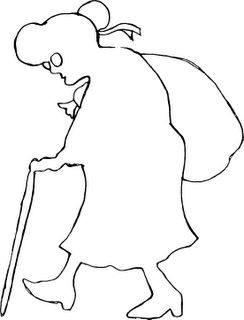I’ve been pondering 20/20 hindsight. The two triggers: the death of Gerald Ford and the execution of Saddam Hussein.
Since Gerald Ford’s death, he’s been lauded for his role in stabilizing the nation following Richard Nixon’s resignation in disgrace. Back then, Ford was vilified from all sides for his pardon of Nixon, and many sources have noted that it likely cost him the Presidential election of 1976 (in combination with economic factors). My parents, staunch Republicans 1) were sure that Nixon’s downfall was engineered by a conspiracy determined to punish him for flouting their wishes; 2) believed that Ford was installed as a puppet of the conspirators (my parents were utterly dismayed, as were so many, that we had a President who had been elected to neither the Vice-Presidency nor the Presidency, and were subsequently disgusted by Nelson Rockefeller becoming Vice President); and 3) were shocked by Ford’s pardon of Nixon (for several reasons, none of which matter in this discussion). However: when Ford ran for election, my parents lined up with the party to work for Ford. Something I may address in the future.
Three decades after those events, we appreciate that Ford sacrificed his political career in that act of pardon, though I wonder that if he knew then what he surely knew two years later, would he have done the same thing? Guts. A public servant, doing right by the public. Would that we’d see it more often. It’s so easy to play it safe, adapting one’s public statements so as to garner poll approval.
With all the cry for blood—make Nixon pay for what he did—Ford perhaps sensed that extending the process wouldn’t in the long run have been in the nation’s best interest. In most cases, that isn’t so—due process must take into account both victim and alleged perpetrator with, ideally, a fair airing of the facts, in order to put the issue to rest. In Nixon’s case, facts never were tried in a court of law, but the public’s verdict ensured that he lived the rest of his life in disgrace (sort of like O.J. Simpson?).
Now for Saddam Hussein. I was taken aback by the fast track to execution, as were many. In this country, death sentence appeals last for years. His was dispensed with in weeks. It doesn’t seem that his guilt was in question, except among those who benefited from his actions. Is due process the issue here? Yes and no.
It certainly doesn’t help that a record of the execution taken from an observer’s cell phone revealed revenge on the part of the official executioners. To his followers, Hussein looks like a defiant martyr to the brave but bitter end. But to all who have been so horrendously impacted by his deeds, the lesson of true justice may have been preempted. It’s still the (currently) powerful holding sway over those without power, though in this round the formerly powerless have triumphed over their oppressor.
Transition from rule by control of the powerful to a fair shake for all regardless of their status depends on the rule of law, namely due process. How does a people learn that process? No fairy godmother can bestow it with a tap of the wand. The ability to vote doesn’t automatically confer wisdom in choice of leaders or enacting of law.
But for a system in crisis, duration of a serious issue is always a concern. How do you weigh the feared impact of potential danger from a known oppressor against what the system may need in order to progress?
Decades from now, will Iraq’s elected leadership be seen as self-sacrificing for the public interest on the path to stability in the currently (international) suspect decision to execute Hussein? Or will Hussein’s execution be the death knell for any aspiration of rising above the subtly shaded deathly deadlock in which Iraq finds itself?

2 comments:
Stunned by his excecution here. I don't know what his death accomplished. Did his death give justice to those he ordered murdered?
It all worries me.
I can't see that most people will feel justice was done. For some, he would have had to die thousands of times.
Others feel cheated because his execution was the outcome of only the first of what would be many trials, so it answers only the murders in that first case.
I also don't see that anyone can say that justice moved swiftly (a right to which we are guaranteed in this country) -- something moved swiftly but it doesn't look like justice.
As I oppose the death penalty, I don't see that his execution has much to do with justice. All I can see is that perhaps some of Iraq's leadership -- those not motivated solely by revenge (and no doubt prodded by the U.S. government) hoped that executing Saddam would relieve them of a terrible emotional drain -- and he was such -- but they may have triggered far worse.
And that's why I ask what history will say.
Post a Comment